This page may contain affiliate links, for which I could earn a small commission. You can review my full disclosure here.
As with anywhere in the world, there are certainly pros and cons to living in Scotland. I get regular emails from readers asking for insights and advice on moving to Scotland and living in Scotland. So I thought I’d compile some thoughts here to help guide your own journey, should you be considering the move yourself!
As with everything I have written and will write on this site, keep in mind these are my personal experiences and insights. I cannot speak for others. And I will not pretend to know how others feel about the pros and cons of living in Scotland.
I can share my experience in hopes that it helps others feel prepared for a similar move. And I can offer my support to anyone choosing to move to another country; it can certainly be a challenge while also being an adventure!
This is quite a long post, but I figure if you’re interested in what life is like here in Scotland, then I can try to put it all in one place for you here!
Because it’s such a long post, I added a bunch of pretty Scotland photos to make it more enjoyable along the way. Prepare yourself for castles and beautiful views!
What is it like for an American living in Scotland?
I’ve already tried to address the variety of things an American will notice upon moving to Scotland. But, of course, there are always other considerations!
I’ve been living in Scotland on and off since 2015. So I also have the benefit of still feeling like a newcomer while also feeling very settled and comfortable here.

After all, one of my earlier posts, after we moved to Scotland, was about speaking American English versus Scottish English. I was perpetually confused my first year here. In fact, I still have many a funny moment misunderstanding someone or completely missing a point if it’s delivered in local slang or in Scots.
Scots is its own language, and I have learned to understand some of it. But I am still on that steep learning curve, even after all these years!
Coming from the US to Scotland can be an easy transition for the vast majority of expats. It can still, however, be a challenge in many ways.
If you haven’t yet, read about what it’s like as a US expat in Scotland. For now, let’s dive into some of the pros and cons, shall we?
Pros of Living in Scotland
There are far too many pros of living in Scotland to fully iterate here in a single article.
I won’t go into all the obvious fun bits of living in Scotland, like the fact that castles are everywhere, historic ruins dot the landscape, and the national animal is an actual unicorn. I won’t talk about the fun festivals, the mesmerizing Highlands, or the fact that you’re never far from the sea.
Those are certainly all pros of living in Scotland!

But what I’ll try to do here is address a few of the most important positive factors that affect this expat’s life in Scotland.
Always remember these are from my personal perspective and your own pros and cons for living in Scotland or elsewhere will undoubtedly vary. And that’s okay! I’m just here to offer my insights after several years of life here in the Edinburgh area.
You might also want to check out these easy day trips from Edinburgh!
Pro: Scotland Offers National Healthcare
One of the most obvious benefits of living in Scotland is the NHS. The National Health Service provides quality healthcare paid for through taxes. This is a basic human right. But it’s an added benefit that the quality of care here is very high.
You can always opt to supplement your public healthcare with private coverage. That might enable you to see a medical professional more quickly and to undergo more optional procedures.
But for the vast majority of us, the NHS is a literal lifesaver.
Knowing that I can receive the medical care I want and need without having to stress about which insurance each provider accepts, how much my deductible is, and what I’ll need to pay out-of-pocket is an extraordinary benefit of living in Scotland.
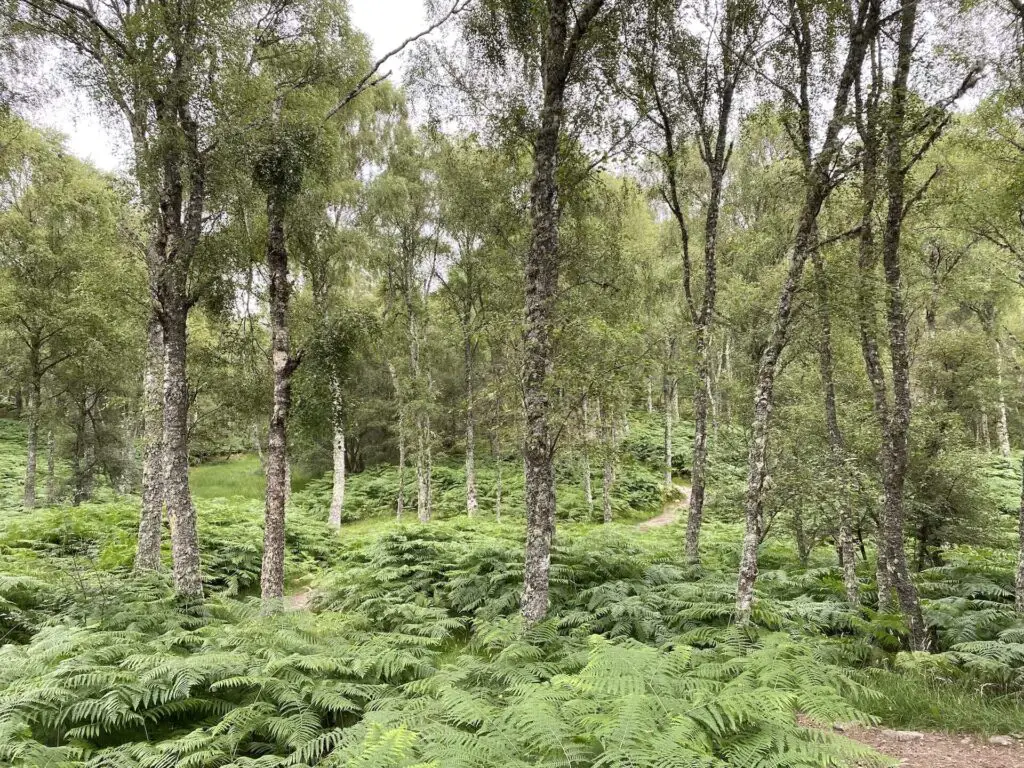
The first few appointments I ever had in Scotland were a bit of a culture shock. I had to break the habit of stopping at the front desk before leaving the office. There was nothing to pay and no paperwork to worry about! Now, I’m much more comfortable with the reality of receiving medical care and then going home. I leave without the stress or complications of insurance documentation and payments.
The NHS is a treasure.
Pro: No Massive Student Loans
Another huge pro of living in Scotland is free higher education.
While I didn’t benefit from this for my own degree, I am certainly benefitting from this since my spouse is not burdened by massive student loans.
Had he done the same higher education in the US instead of in the UK, he would have been under a mountain of debt when we met. That would have affected our ability to travel, to try new jobs, to enjoy our 20s, and even to marry.
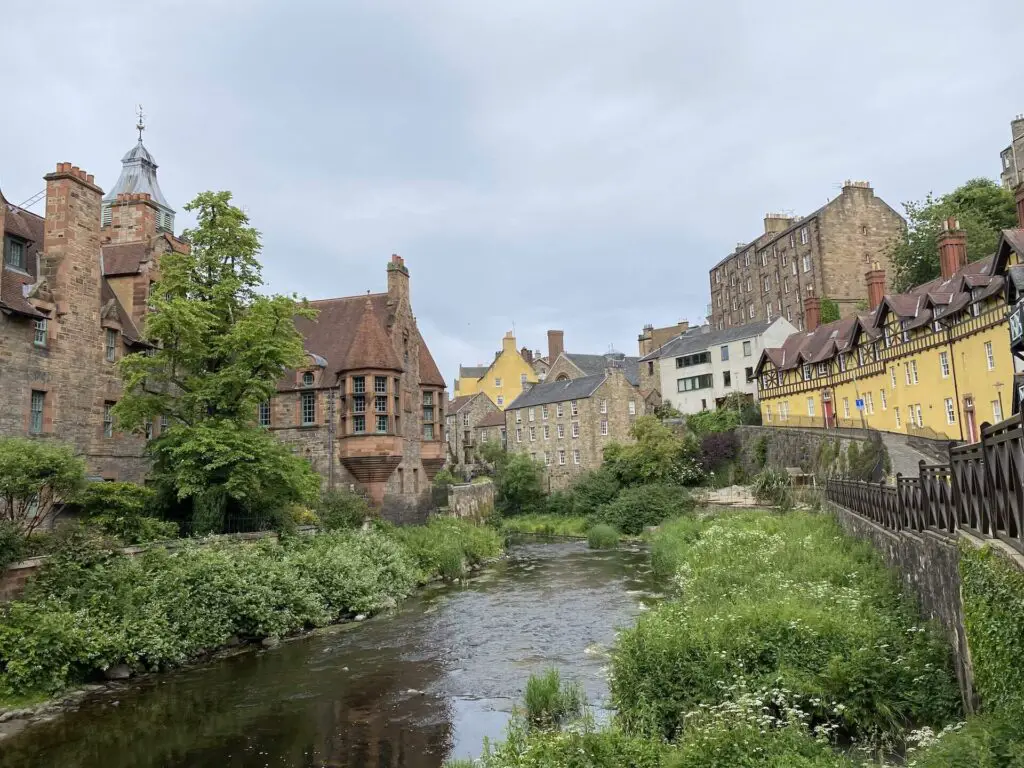
I know many in my generation who weighed the pros and cons of marriage against the burden of student loans. Not having that weight anchoring us down, we’ve had the privilege of an incredible adventure for the early years of our relationship.
Related: How Can a US Citizen Get UK Residency Through Marriage
Pro: Wonderfully Welcoming People
Not only have I felt welcomed by neighbors and strangers alike, but I feel welcome in Scotland by policies and legislation. I know I am very privileged as a white American woman. I could very easily have a dramatically different experience than another newcomer to Scotland.
However, as a general policy, the Scottish government goes out of their way to welcome New Scots. In fact, that’s what they call us.
If my husband and I moved to the US, he would be called an alien. Here, I am called a New Scot.
Think about the power of those words and their meanings.

Scotland is a welcoming place to live even if not every single resident is perfect. The nation, on the whole, is welcoming. By law and in practice, Scotland is an open and welcoming place to live.
Pro: Walkability and Neighborhoods
There’s something I absolutely adore about the geographical layout of Scotland. In the US, you could drive out of a city and into the suburbs, and then onto a highway and eventually, perhaps, reach more rural areas. This can sometimes take hours to complete the transition from urban to rural areas.
While not always the case, the US is largely designed as an urban center. It sprawls out into suburbs, which eventually yield to rural or wild spaces.
In Scotland, I can leave the city center and see sheep and cows and horses within a 10-minute drive.
In the town where I live, I can walk to 4 massive grocery stores, 2 butcher shops, a fishmonger, countless restaurants and cafes, an expansive library, a huge sports complex, a variety of pubs, live music venues, and a train station that will bring me all around the country.

I can also walk around the corner from my apartment and watch the lambs frolicking in the fields. Or I could turn the next corner to say hello to the cows.
Our friends live a mile away. That walk takes us through neighborhoods or along the fenced farm fields where cows or horses take their turns grazing.
The division of space is less stark here. Villages and towns grew naturally before the vehicle affected planning. In Scotland, you can live near all the amenities you might ever want without sacrificing green spaces and fresh air.
Of course, sometimes that air is a bit barnyard-scented, but it’s charming nonetheless!
Explore some of my favorite Scotland destinations
Pro: Impressive Accessibility
While, again, I am privileged to be able-bodied and not require any accessibility aids, I think it’s still fair to say that Scotland is accessible. Despite its ancient villages and cobbled streets, the country makes an effort to adapt and to ensure that all are welcome.
I also love that every government announcement, debate, or formal interview (like the daily Covid briefings throughout 2020) is accompanied by a sign language interpreter. Ensuring everyone has access to vital information has been legally required since before I moved to Scotland. Meanwhile, Americans had to sue their government in 2020 for similar access during the pandemic. The Biden administration has been the first to offer interpreters during their daily news briefings.
There is also accessibility in moving about the country. There are trains and buses connecting even the most remote parts of Scotland. Ferries grant access to islands and peninsulas. International airports connect Scotland with the world.
It is easy to get around within Scotland and outwith Scotland.
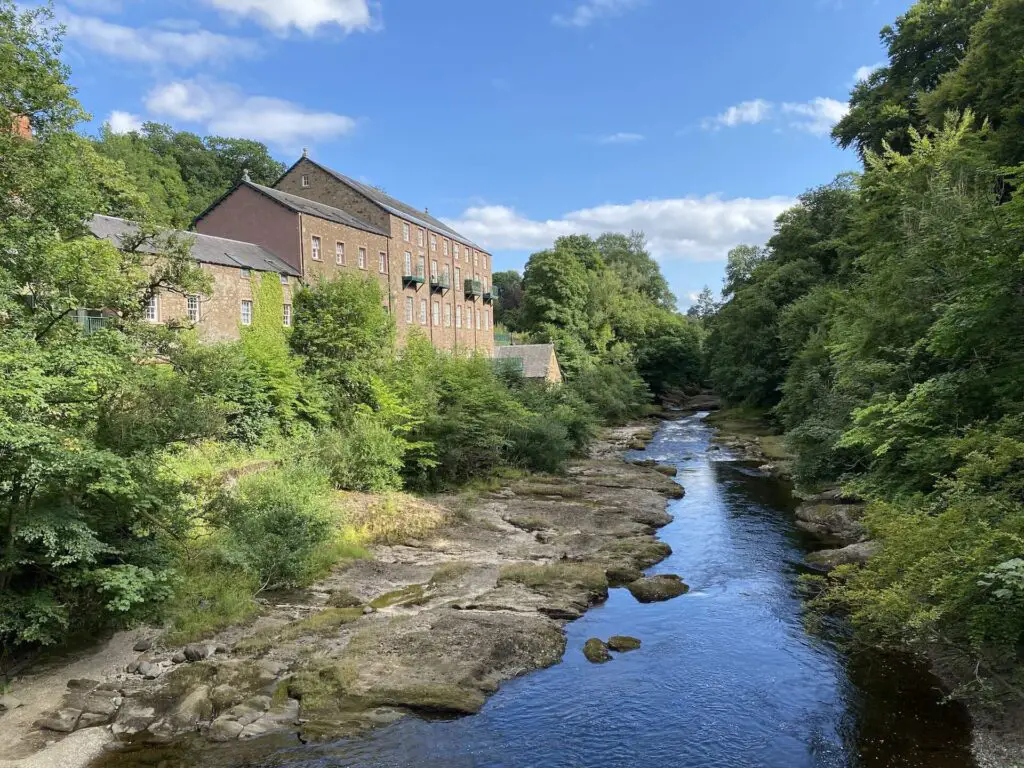
As an American, I got my driver’s license the day I was legally able to do so. In Scotland, I’ve yet to get my license. Of course, it would have been helpful over this past year as the pandemic made public transport less attractive and my other half was injured and unable to drive (or walk far enough to get to the train station if we’d decided to brave it).
Nonetheless, in non-pandemic times, a license is not wholly necessary in Scotland at all. If you live in a city, especially, you can very easily access all parts of the country by public transport.
Don’t believe me? My friend Kay blogs all about her adventures around Scotland…and she doesn’t have a driver’s license either!
Explore all the resources for Scotland travel planning
Pro: Travel Opportunities from Scotland to Europe
Funny thing about folks in the UK: they say they’re going to Europe when traveling to the likes of France, Spain, Greece, etc. They (even before this Brexit nightmare) considered themselves to be separate from “Europe” where they went on holiday.
In any case, living in Scotland means you can very easily, cheaply, and conveniently travel all around Europe! Trains connect all major cities for leisurely vacations while cheap airlines also offer quick escapes.

For environmental reasons, it’s ideal if you can travel by less destructive means than airplanes. I have, obviously, taken more than my fair share of flights. I won’t tell anyone they can’t do the same. But I’m trying to be more conscientious about my travel choices and encourage you to investigate alternatives wherever possible.
Given the marvelous train infrastructure in Scotland and throughout Europe, it’s very possible to take a vacation without leaving terra firma!
Check out my 2-week European vacation itinerary by train
Pro: Holiday Time!
Speaking of vacations, holiday time is a precious and ardently protected thing here in Scotland. At my job, we get 34 paid vacation days each year; they don’t carry over so you are strongly encouraged to take all 34 in a calendar year.
In the US, comparable jobs would give me 2 weeks of vacation time, plus federal holidays. The trouble with those forced long weekends is that everyone is taking that time so prices skyrocket if you want a long weekend away somewhere.

My 34 days of holiday time is normal in Scotland. A better work-life balance is encouraged here, rather than that undercurrent of working yourself into an early grave in the States.
There’s no such thing as “sick days” here. We’re all adults. If you’re too sick to work, take the day off. There’s no need to work through the flu just because you don’t have any other paid sick days left.
During Covid especially, these policies and trust for employees doing the right thing shone through in a dramatically different way between Scotland and the US. I watched from afar as some of my friends and family back home saw their paychecks dwindle as they were regularly forced off work a few days at a time for Covid testing — unpaid!
The difference in living to work versus working to live is stark and certainly a huge pro of living in Scotland.
Cons of Living in Scotland
Okay, I promised to provide both the pros and cons of living in Scotland. So let’s jump into the negatives.
An enormous disclaimer here: These are my cons and they might not be yours at all. I’m simply presenting some food for thought so you know what you’re getting into should you move to Scotland someday soon.
Again, I’m coming from the US and have that perspective when evaluating life in Scotland.

Con: The Weather.
I know, I know. It’s obvious but it’s brutally true. The weather in Scotland is less than ideal. I had a very hard time adjusting when we first moved here. We were living in the Caribbean for three years prior to coming to Scotland, so — to be fair — that was a dramatic shift!
Nevertheless, the weather in Scotland is not everyone’s cup of tea. I don’t fare well in cold weather, so I’m most likely to be found hibernating for a few months each year. While that’s not my perfect setup and I’d much rather snowbird to warmer climes, it is my reality for now.

The weather takes some getting used to for nearly every newcomer to Scotland. If it’s any solace, even the locals love to comment on the weather’s volatility and dreariness. It’s a fact of life here but that doesn’t make it any easier for those of us who thrive in the sun, like houseplants.
Con: Distance from Loved Ones
For Americans moving to Scotland, the distance can certainly be a con. I’ve chosen to leave the country where I grew up and where my family and friends predominantly remain. That distance does make things more challenging.
From missing big events to planning every visit around weddings and holidays; from phone calls at odd hours due to time differences to watching the little ones in your life grow up from too far away…living in Scotland if your family lives in the US can be a struggle.
When your local friends plan their many weeks of holiday time galavanting somewhere new, you will plan yours for a visit back to the same places again and again and again.
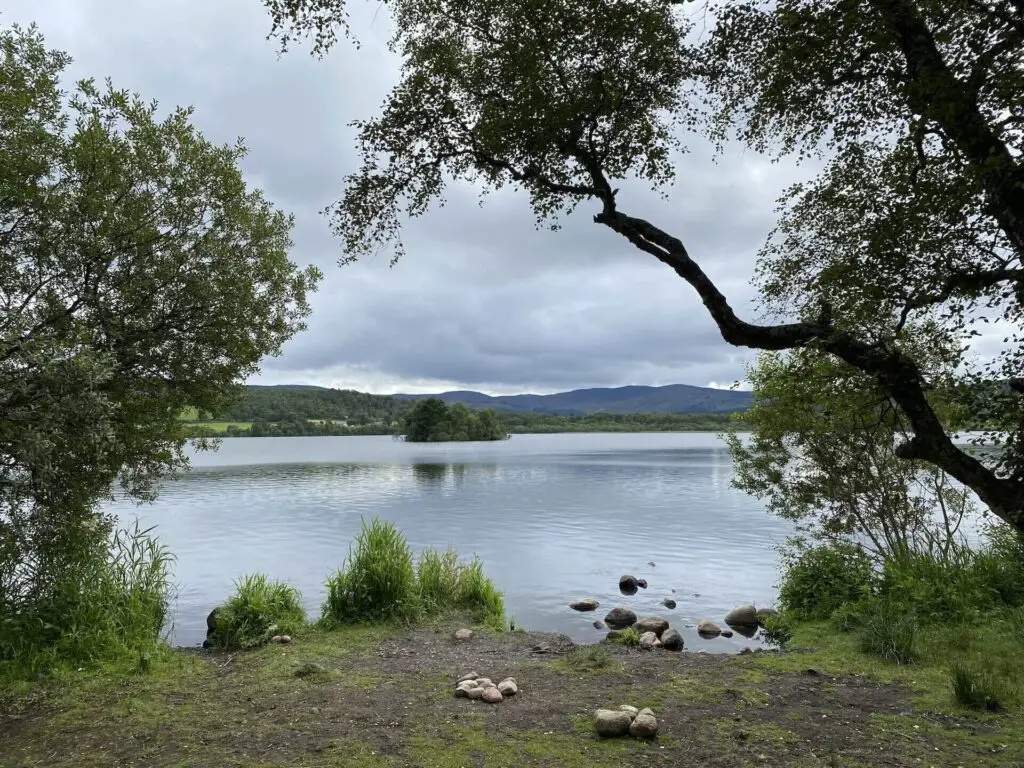
While your friends and family back home carry on as they were, you have entirely new experiences and new people become a part of your everyday life in Scotland. That separation and difference can be hard for folks back home to handle.
You’ll see relationships shift. You’ll lose some friends over time and your bonds with those who are far away will only stay strong through concerted effort from both sides.
That’s an unfortunate reality for any expat. Those with an ocean in between and many hours’ time difference have extra hurdles to overcome.
Related: The Ups and Downs of Expat Life
Con: Driver’s License Woes
As with any move to a different country, there is plenty of red tape to get through for a litany of needs. For Americans moving to Scotland, a driver’s license becomes a nightmare. While licensed drivers from many other countries can simply exchange theirs for a UK license, Americans must start from the beginning.
I know I said that one of the pros of living in Scotland is that you don’t need a license. But if you want a license…brace yourself.
It doesn’t matter if you’ve been driving for several decades; back you go to your written test, driving lessons, and practical exam. It’s a long process and it can get expensive if you need multiple lessons.

There are also two different types of licenses in the UK: manual or automatic. This means you cannot drive a manual vehicle unless you receive a manual driver’s license.
Electric cars are gaining prominence and the Scottish government has ambitious climate change goals. Because of that, I am in the process of getting just an automatic license. We bought our first electric car recently so there’s no real need for me to learn manual now.
I’m of a US generation that hardly ever saw a stick shift, forget about learning to drive one. In the 25 years I lived in the States, I could list on one hand the number of vehicles I remember being in that weren’t automatic.
Alas, learning here would be more expensive (more lessons required) and more of a lengthy process in an already lengthy process. So an automatic driver I shall remain.
Con: Adapting to Different Housing Standards
In the US, you’ll find dishwashers, tumble dryers, coffee makers, air conditioning, and a variety of modern conveniences everywhere you go. In Scotland, you may or may not find these in vacation rentals or homes.
But, here’s the thing: You don’t need these things. I know, to an American that might sound like blasphemy! But it’s true.
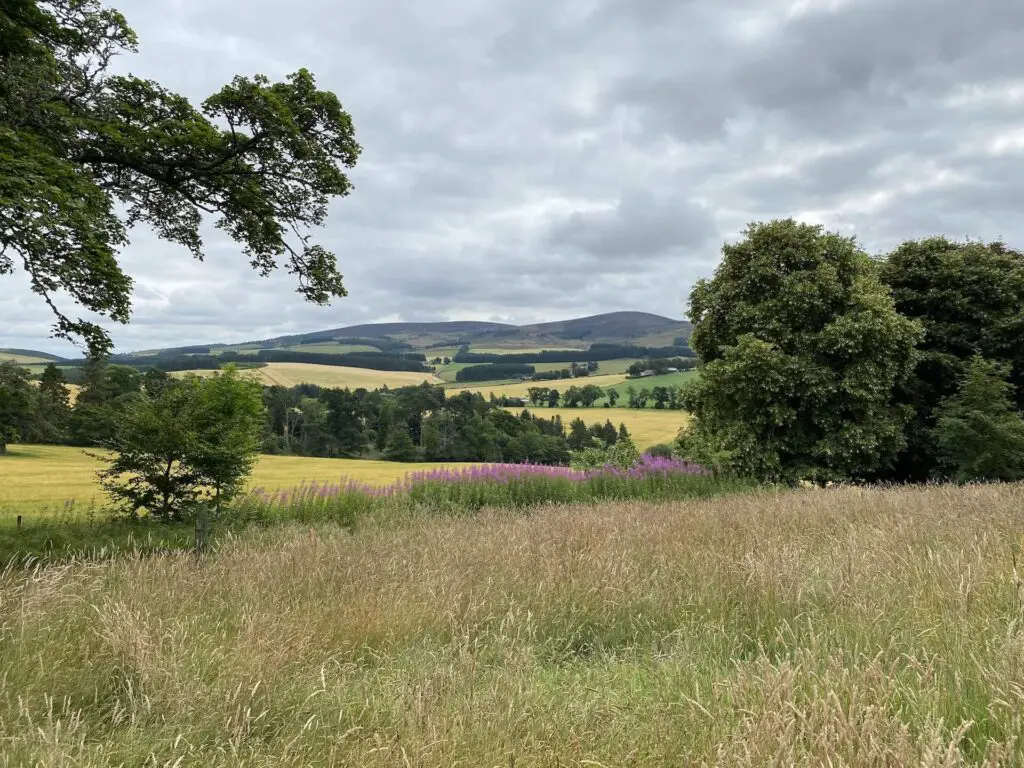
Having a tumble dryer is incredibly convenient. But line-drying clothes is entirely possible and much better for the environment and lifecycle of the fabrics. We have a tumble dryer in our current home, but I still line dry as much as possible.
Having a dishwasher is wonderful! But drying racks work wonders and you will, definitively, find one of those in every single domicile in Scotland. Along with a dishwashing bucket in the sink. Took me a while to get used to it, but now it’s second nature!
Con: You Will Never Be Local
It doesn’t matter how long you live in a place, if you’re not from there then you’ll never be a true local. You can learn the lingo and change how you speak, but you’ll still sound different. You’ll make the effort to watch TV and pick up on pop culture, but you’ll still miss nuances and references from years past.
And you can travel every weekend to a new small village or big city. But you’ll still be unfamiliar with the history of places that is ingrained in those who have been here for generations.
While this is true for an expat anywhere, Scotland is a particularly small country with especially deep roots for many.
When giving directions, it’s common to reference places that used to exist, rather than the current business or structure. When telling stories, it’s common to reference people by their relations, many of whom you will not know because you didn’t grow up here.

You can dig your roots as deep as you dare, but you will never quite be local.
Of course, in a place as welcoming as Scotland, at least you’ll be encouraged to keep learning and to keep digging deeper. You’ll be welcomed into the fold even if you ask too many clarifying questions and even if you don’t understand all the slang.
You will be welcomed to be part of the community. Even if you’ll always have one foot outside, in another world altogether. That’s the beauty of Scotland. Even the cons of living here are still wrapped in a silver lining.
I’ll surely add to this post over time. I’ve been living in Scotland since 2015, yet I continue to notice small differences. And my appreciation for the larger differences continues to grow. I’ll try to add the important ones to this list of pros and cons of living in Scotland over time to help any future potential expats along the way.
Looking for more?
- Start with My Expat Timeline to see where I’ve lived
- Get all the Scotland expat info here
- And the Roatan expat info here
- See my travel destinations
- Subscribe to my newsletters to stay in touch!

